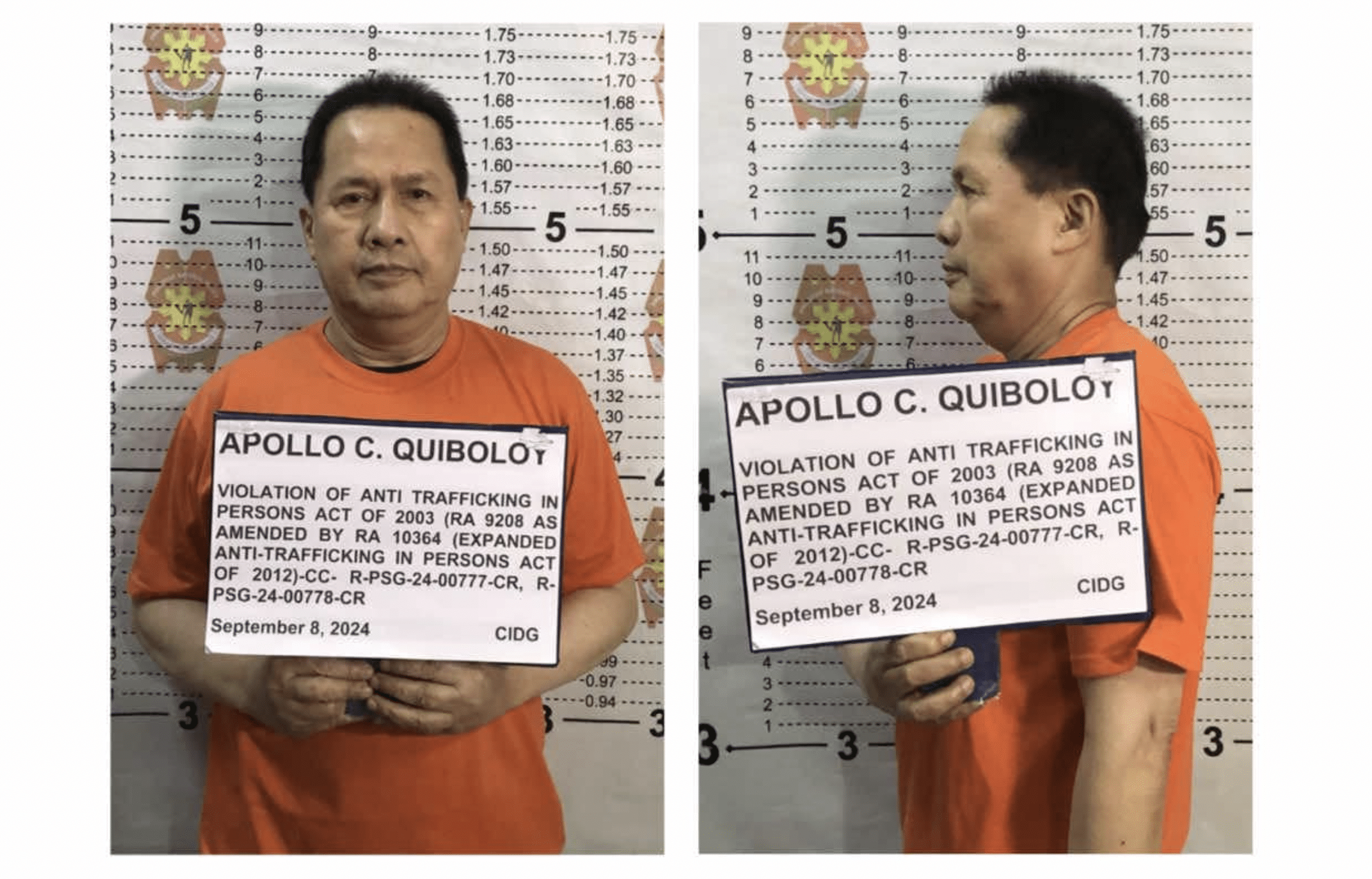
Apollo Quiboloy. —Photo from DILG Sec. Abalos/Facebook page
DAVAO CITY, Philippines — The 16-day police operation that led to the arrest of Pastor Apollo Quiboloy of the Kingdom of Jesus Christ (KJC) sect was considered unprecedented in scale in the country’s history and a test case for the provision in the Rules of Court that allow law enforcers to break into buildings or enclosures, police officials here said.
The large number of police officers deployed and the length of time spent to arrest one person hiding within his 30-hectare compound has never been done in the country before, according to top regional police lawyers.
READ: Police ready 200 cases vs Quiboloy protectors
The operation involved 4,500 troops at its height and cost the government P35 million, said Police Brig. Gen. Nicolas Torre, who led the “Operation Plan Teknon Alpha” to get Quiboloy, and who was then regional director of the Davao Police Regional Office (PRO 11). He is now the acting director of the Criminal Investigation and Detection Group.
READ: Tipsters on arrest of Quiboloy, 4 others to bag P14-M bounty – PNP
Torre said it was very important for the police to arrest a wanted person like Quiboloy, a moneyed and influential person protected by “powerful” people, because “how could the police effectively arrest violators of even a simple smoking ordinance if they could not arrest a person facing a much more serious offense?”
He said the “plan proper” consisted only of five pages but the supporting documents required at least five reams of paper, because aside from the arresting officers, it involved an elaborate mobilization of men and resources—from hundreds of civil disturbance management troops, medical and security teams and investigators, down to kitchen preparations, portable toilets, transportation and supply.
“It was almost like going to war,” recalled Torre during a lunch with local journalists last Sunday.
Section 11
Lawyer Israelito Torreon, Quiboloy’s lead legal counsel, also noted it was the first time in the country that an arrest operation went beyond eight hours, questioned the operation as “illegal” and filed a slew of cases in court.
But police lawyers based their actions on Section 11 of Rule 113 of the Rules of Court, which allows the officer of the law to break into an establishment or enclosure when they have reasonable grounds to believe that the subject of their warrant of arrest is just inside.
Police Col. Joseph Orson, chief of the legal office of PRO-Soccsksargen, said the operation to arrest Quiboloy can be considered a test case for this provision.
When applied to Quiboloy’s case, police were allowed to break into not only just one building but also the KJC compound, which, according to Torre, showed signs of the pastor’s presence after weeks of surveillance and meticulous intelligence works.
Police also counted on Section 11 when failing to find the entrance to an underground facility detected by ground penetrating devices and other technologies employed during the operation, Torre decided to dig a tunnel deep into the basement of the Jose Maria College Building.
Surrender arrangements
On Sept. 8, the 16th day of the operation, and just as the police were poised to assault the Bible School Building, where Quiboloy was confirmed to be hiding, Torre received a note from top Philippine National Police officials that the pastor already agreed to “surrender” but to the Intelligence Service of the Armed Forces of the Philippines.
To ensure it was for real, Torre asked that Quiboloy should appear to a trusted police officer 30 minutes before the military plane was to land at the Philippine Air Force’s Tactical Operations Group (TOG) 11’s air station in the city, which is located beside the Davao International Airport (DIA).
Torre said Police Brig. General Romeo J. Macapaz, the PNP’s deputy director for intelligence who was tasked to fetch Quiboloy, arranged with him the latter’s safe entry into Waxi’s, a KJC-owned fastfood outlet that connects to the KJC ground near the Bible School Building, then already surrounded by hundreds of Special Action Force troops.
“Our troops were already poised for attack so the last thing that he (Macapaz) wanted was to be mistaken as a KJC member,” Torre said.
True enough, as Macapaz entered the receiving area, at least three KJC ministers showed up with Quiboloy. Aside from Quiboloy’s four co-accused, Teresita Tolibas Dandan and Helen Panilag, who were wanted by the Federal Bureau of Investigation for several charges in the United States, including fraud and sex trafficking, also surrendered with the pastor.
Quiboloy, his lawyer, and Macapaz were in one of the nine vehicles that brought them to the TOG 11 grounds, passing through the KJC hangar.
Torre said he had to breach three steel gates—that of the KJC, the DIA, and the old airport—to allow the convoy to reach the TOG 11 grounds where the C-130 plane was waiting.
“I had to do that so that the convoy of vehicles would not use the public highway,” he said.

